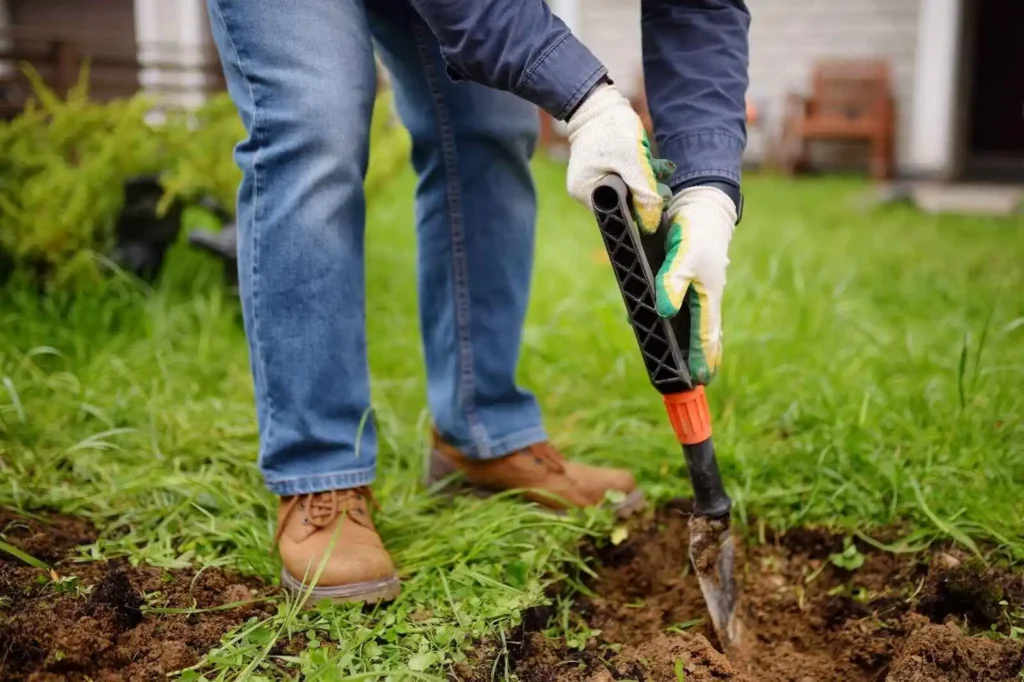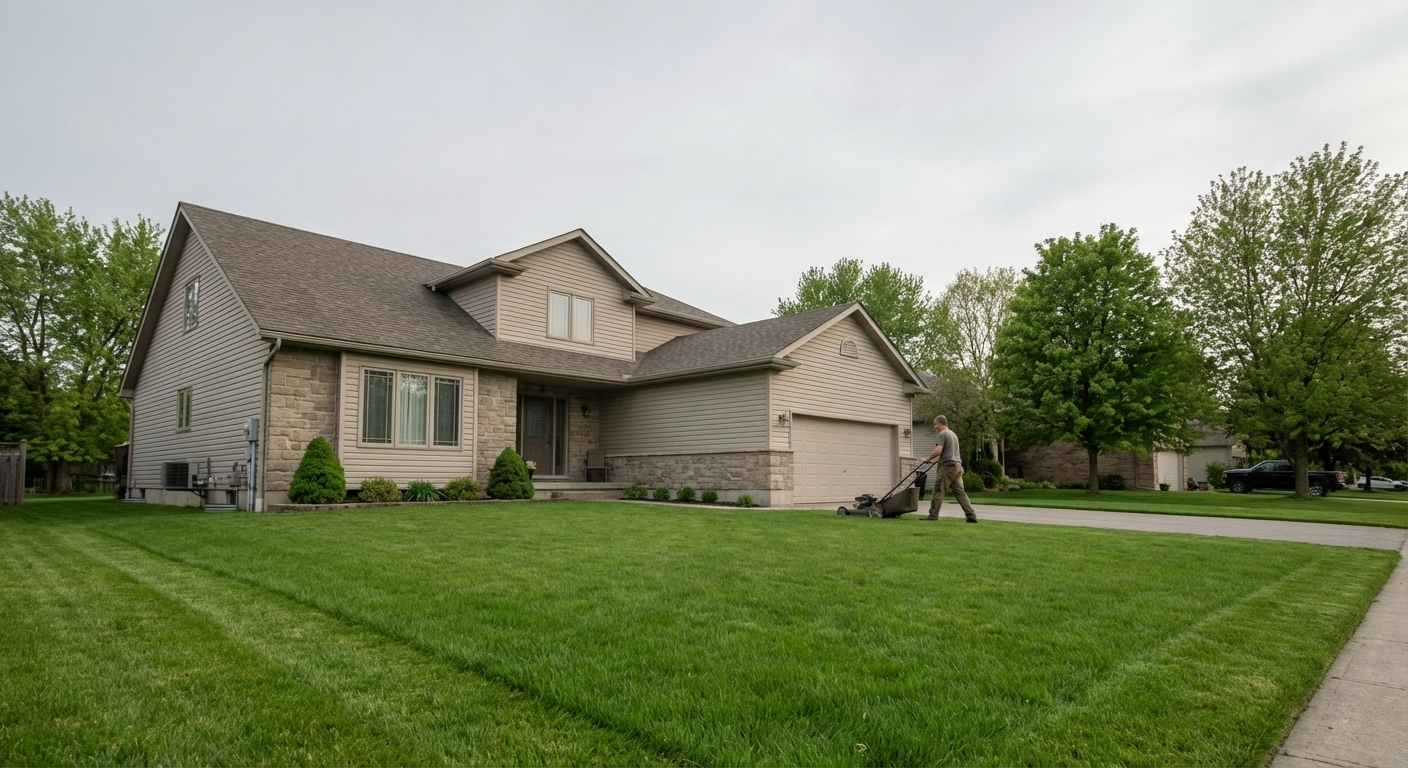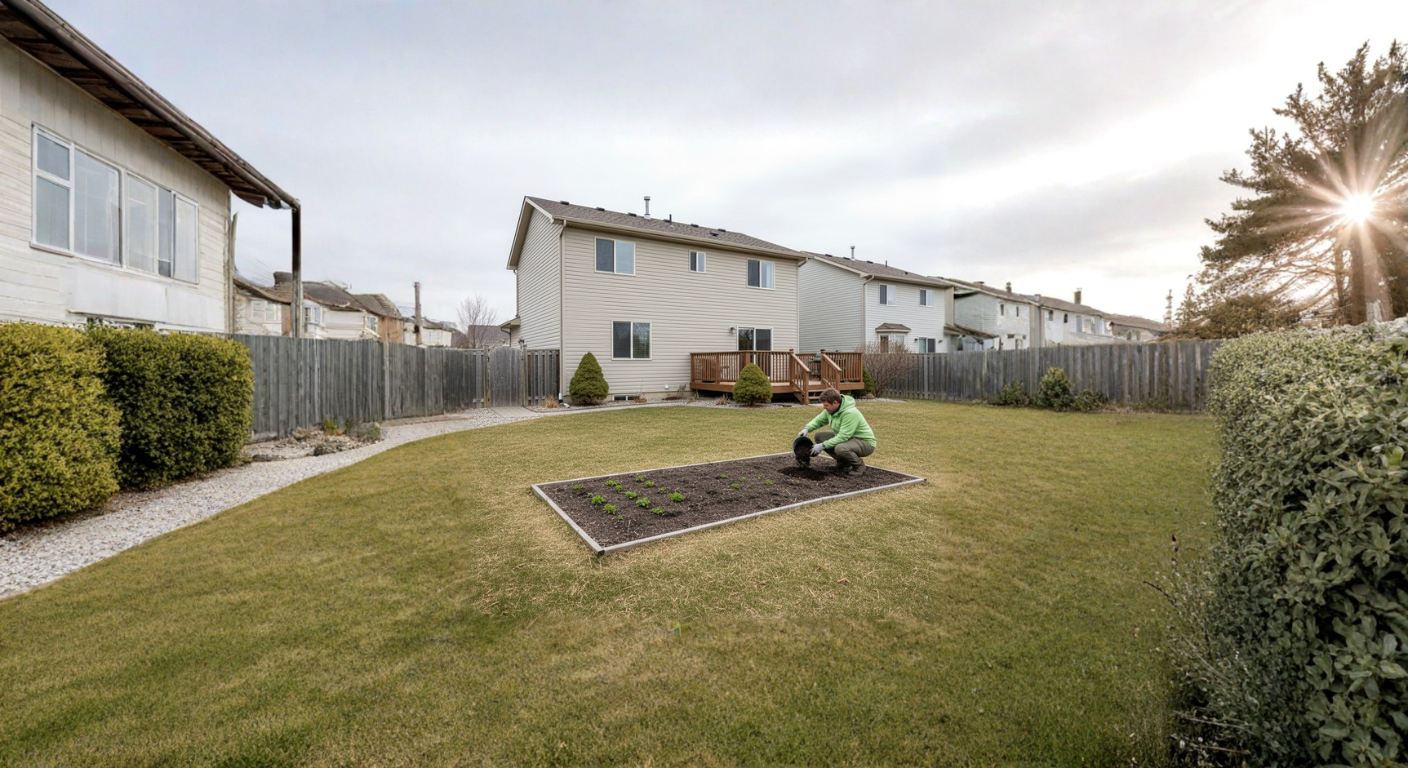What Causes Brown Spots in the Lawn? How do I fix brown spots on my lawn? These are common questions that homeowners, especially seniors, ask when seeking optimal lawn care solutions in Mississauga, Ontario.
Brown spots, often caused by factors like uneven watering, fungal diseases, or compacted soil, can mar the lush green expanse of a lawn, diminishing curb appeal and potentially lowering property value—crucial considerations for those looking to sell their homes, which is why timely Lawn Maintenance in Hamilton plays an important role in keeping outdoor spaces healthy and attractive.
For seniors, maintaining a healthy lawn goes beyond aesthetics; it offers a safe and enjoyable outdoor space.
However, the physical demands of lawn care can be challenging.
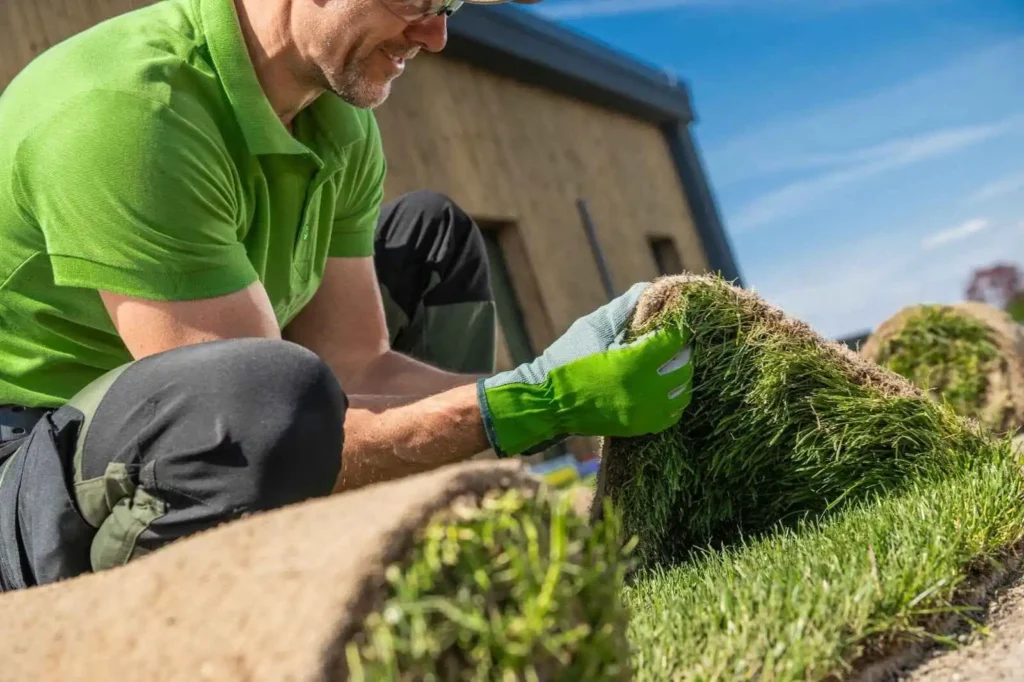
This is where professional yard and lawn care maintenance companies, like Custodia, come into play.
These services not only alleviate the physical strain but also ensure that your lawn receives expert attention, reducing the risk of costly mistakes that can arise from DIY efforts.
The dangers of brown spots extend beyond appearance; they can signal underlying issues that, if not addressed promptly and correctly, may lead to further damage.
DIY lawn care, while well-intentioned, can inadvertently exacerbate these problems.
Professional services, on the other hand, offer tailored solutions backed by experience and knowledge of local conditions—essential for maintaining a vibrant lawn in Mississauga’s diverse climate.
In this guide, we’ll explore senior-friendly tips and professional insights to help you achieve and maintain a beautiful, healthy lawn throughout the seasons in Mississauga.
What Is Causing My Lawn To Turn Brown?
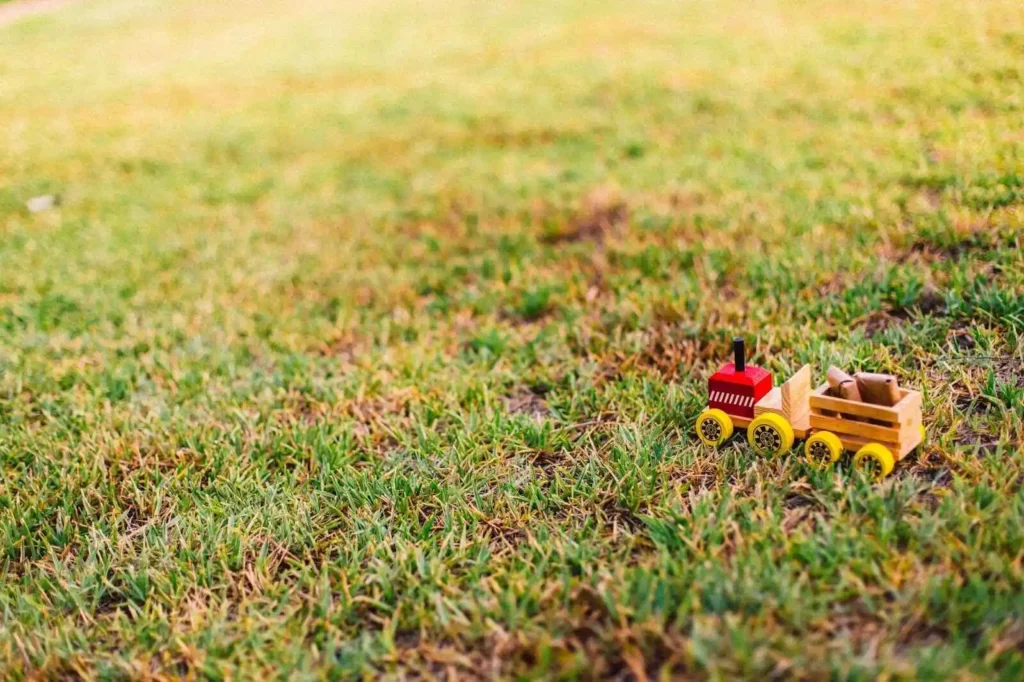
When your once-green lawn starts to turn brown, it’s often a distress signal from your grass indicating that something isn’t quite right with its environment or care routine.
Several factors can contribute to brown patches, ranging from environmental stressors to maintenance practices. Identifying the underlying cause is crucial for implementing effective solutions and restoring your lawn’s health and vibrancy—while also keeping your property looking its best with Window Cleaning Services in Brampton.
Here are 10 common reasons why your lawn might be turning brown in Mississauga:
- Insufficient Watering
Grass needs regular, adequate watering to thrive. Underwatering, especially during hot and dry periods, leads to shallow root systems unable to access deep water sources.
This results in dry, stressed grass that turns brown. Proper watering involves deep, infrequent watering sessions to encourage deep root growth.
- Overwatering
While grass needs water, excessive watering can drown the roots by depriving them of essential oxygen and compacting the soil.
Waterlogged soil leads to shallow roots and encourages fungal growth, which manifests as brown patches or spots on the lawn.
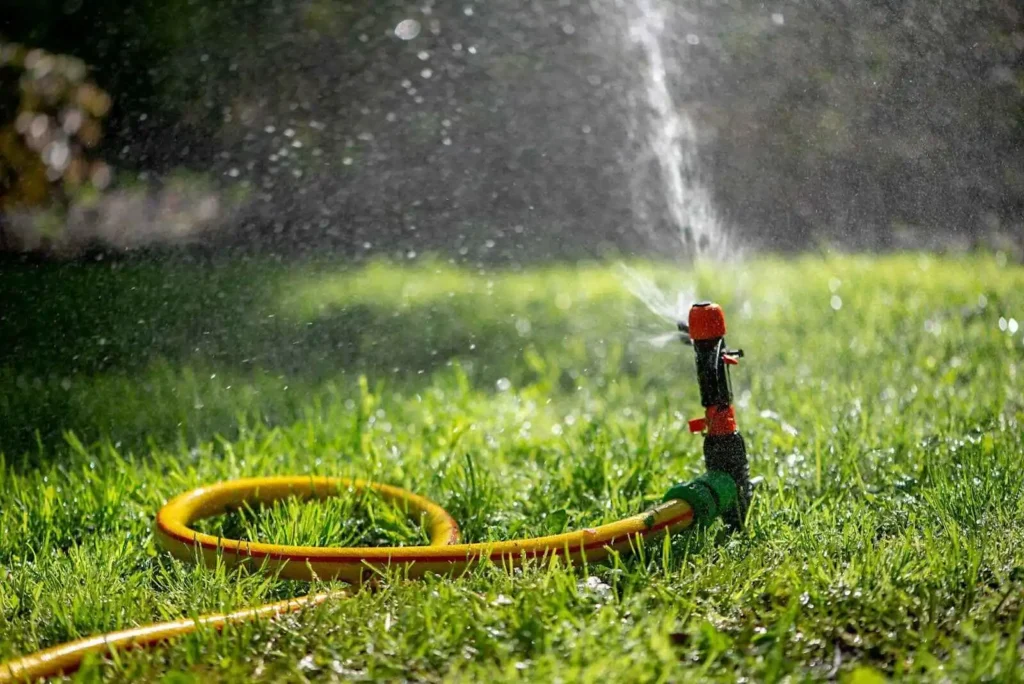
- Improper Mowing
Mowing practices greatly impact lawn health. Mowing too short (“scalping”) stresses the grass by reducing its ability to photosynthesize and develop deep roots.
Infrequent mowing can cause the grass to grow too tall, shading lower leaves and causing them to yellow and eventually turn brown.
- Compacted Soil
Compacted soil restricts root growth and prevents water, air, and nutrients from penetrating deeply into the ground. This leads to shallow root systems that are vulnerable to drought stress, resulting in brown patches across the lawn.
- Poor Drainage
Areas with inadequate drainage retain excess water, suffocating grass roots and promoting fungal diseases like root rot.
These conditions often manifest as brown, soggy patches in low-lying areas or where water naturally pools after rain or irrigation.
- Nutrient Deficiency
Grass requires essential nutrients like nitrogen, potassium, and iron for healthy growth.
A lack of these nutrients can cause the grass to yellow and eventually turn brown, particularly in older leaves. Soil testing can identify deficiencies and guide appropriate fertilizer applications.
Other include:
- Fungal Diseases
Various fungal infections, such as dollar spot (Sclerotinia homoeocarpa) or brown patch (Rhizoctonia solani), thrive in humid conditions or when grass remains wet for extended periods.
These diseases manifest as irregular brown patches or spots on the lawn, often surrounded by darker green grass.
- Thatch Buildup
Thatch is a layer of accumulated dead grass, roots, and debris that forms between the soil surface and living grass.
Excessive thatch prevents water, air, and nutrients from reaching the soil and roots, resulting in brown patches as the grass struggles to access essential resources.
- Environmental Stress
Grass can suffer from environmental stressors such as extreme heat, cold snaps, or prolonged exposure to direct sunlight without adequate hydration.
These stressors weaken the grass, causing it to turn brown as a survival mechanism to conserve energy and moisture.
- Pest Infestation
Insect pests like grubs (larvae of beetles) or chinch bugs can feed on grass roots, depriving the grass of essential nutrients and water uptake capabilities.
As the roots weaken, the grass turns yellow and eventually brown, particularly in localized patches where pests are most active.
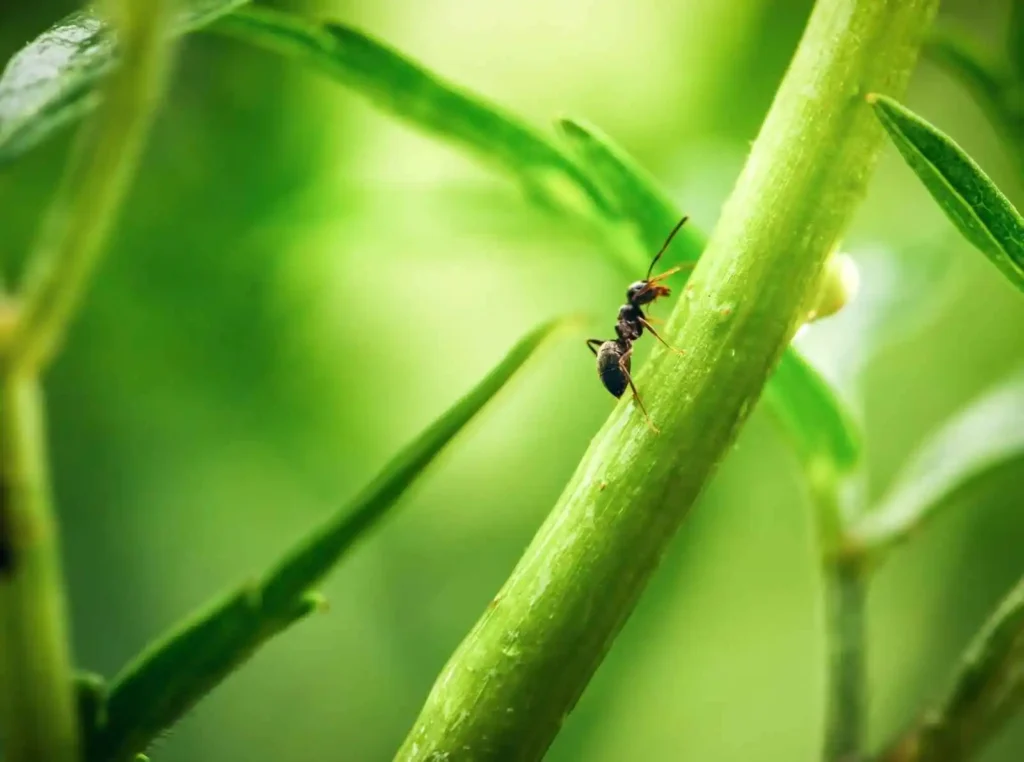
Understanding these factors and their specific impacts on your lawn will help you diagnose the issue accurately and implement targeted solutions to promote healthier grass growth and reduce brown spots.
If you’re unsure about the condition of your lawn or need expert advice tailored to your specific needs, contact Custodia today – Call 1-833-410-4357.
Schedule a free professional consultation for a custom lawn care and treatment plan to ensure your lawn stays lush and green throughout the season.
Why Prevention is Crucial for Maintaining a Beautiful Lawn in Mississauga
A beautiful lawn is more than just an aesthetic feature; it’s a testament to the health and vitality of your home’s outdoor space. Prevention is crucial in maintaining a lush, green lawn for several compelling reasons, and investing in Lawn Maintenance in Burlington helps ensure long-term lawn health while reducing costly repairs later on.
Let’s take a look!
- Cost-Effectiveness
Preventing lawn issues is often far more affordable than dealing with significant problems after they’ve developed.
Regular maintenance can prevent costly treatments for diseases, pest infestations, and extensive repairs needed for damaged lawns.
- Time Efficiency
Preventive measures save time in the long run. Addressing minor issues as they arise and following a consistent care routine prevents the need for more intensive and time-consuming interventions later on.
- Healthier Grass
Preventive lawn care ensures that your grass remains healthy and resilient. Healthy grass is better able to withstand environmental stresses such as drought, extreme temperatures, and heavy foot traffic, maintaining its vibrant green appearance.
- Pest and Disease Control
Regular inspection and maintenance help in early detection and prevention of pests and diseases. This proactive approach stops infestations and infections before they spread, preserving the overall health of your lawn.
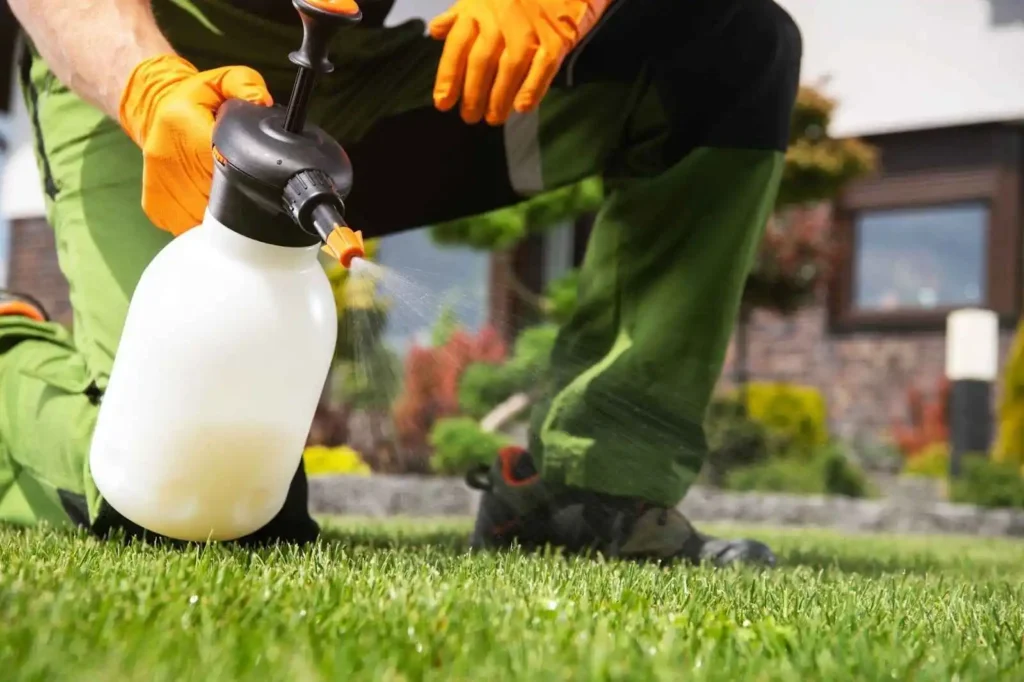
- Enhanced Curb Appeal
A well-maintained lawn enhances the curb appeal of your home, making it more inviting and aesthetically pleasing.
This is especially important if you plan to sell your property, as a beautiful lawn can significantly boost its market value.
- Environmental Benefits
Healthy, well-maintained lawns contribute positively to the environment. They reduce soil erosion, improve air quality by capturing dust and pollutants, and provide a habitat for beneficial insects and wildlife.
- Safe Outdoor Space
Preventive lawn care ensures that your outdoor space is safe for family activities. Proper maintenance reduces the risk of hazards such as uneven ground, which can cause trips and falls, especially for seniors.

- Stress Reduction
A well-kept lawn can provide a serene and relaxing environment, reducing stress and promoting mental well-being. Regular maintenance practices like mowing, watering, and fertilizing contribute to a tranquil outdoor space.
- Consistency in Appearance
Preventive measures help maintain a uniform and consistent lawn appearance. Regular mowing, watering, and fertilizing prevent uneven growth, discoloration, and bare spots, ensuring your lawn looks its best year-round.
- Long-Term Sustainability
Investing in preventive care practices promotes the long-term sustainability of your lawn. Healthy, well-maintained grass can regenerate and recover more quickly from damage, ensuring a beautiful lawn for years to come.
Taking a proactive approach to lawn care by implementing preventive measures is essential for maintaining a beautiful, healthy, and vibrant lawn.
By focusing on prevention, you not only save time and money but also enjoy the numerous benefits of a well-maintained outdoor space.
Common Weeds and Pests to look out for in Mississauga Lawns
Weeds and pests are common challenges in maintaining a healthy lawn. Identifying and managing them effectively is crucial for lawn care, especially for seniors who may prefer less physically demanding methods.
Here are some common weeds and pests found in Mississauga lawns, along with senior-friendly control methods:
Common Weeds:
- Dandelions: Broadleaf weeds with deep taproots. They spread quickly and can outcompete grass for nutrients and water.
- Crabgrass: Annual grass that thrives in thinning lawns. It can take over large areas and crowd out desirable grass species.
- Clover: A low-growing weed that spreads quickly. While it can fix nitrogen in the soil, it often indicates nutrient imbalances.
- Chickweed: Spreads rapidly in moist, shaded areas. It can form dense mats that smother grass.
- Quackgrass: Perennial weed with deep rhizomes. Difficult to eradicate and can dominate the lawn.
- Thistle: Spiny, broadleaf weeds that are painful to touch and can spread aggressively.
- Ground Ivy (Creeping Charlie): A vining weed that forms dense mats, crowding out grass.
- Oxalis: Often mistaken for clover, it has heart-shaped leaves and yellow flowers. It spreads easily in weak lawns.
- Purslane: A succulent weed that thrives in hot, dry conditions. It can outcompete grass for water.
- Knotweed: Grows in compacted soils and forms tough mats that are hard to remove.
Common Pests
- Grubs: Beetle larvae that feed on grass roots, causing large brown patches as the grass dies.
- Chinch Bugs: Small insects that suck sap from grass blades, leading to yellowing and browning.
- Sod Webworms: Caterpillars that eat grass leaves and stems, creating irregular brown patches.
- Armyworms: Feed on grass blades, leading to rapid defoliation and brown spots.
- Cutworms: Caterpillars that cut grass blades at the base, causing the grass to wilt and die.
- Billbugs: Larvae feed on grass stems and roots, creating dead patches that resemble drought stress.
- Ants: While not directly harmful to grass, they can create mounds that disrupt the lawn’s surface.
- Moles: Dig tunnels that can uproot grass and create uneven surfaces.
- Sod Webworm Moths: Lay eggs that hatch into larvae, which feed on grass.
- Leatherjackets: Crane fly larvae that feed on grass roots and shoots, leading to thinning and bare patches.
Senior-Friendly Lawn Weed and Pest Control Methods
Mulching
- Use mulch in garden beds to suppress weed growth.
- Reduces the need for frequent weeding and conserves soil moisture.
Organic Weed Control
- Apply organic herbicides that are safe and easy to use.
- Hand-pull weeds using ergonomic tools to minimize physical strain.
Natural Pest Repellents
- Use neem oil or insecticidal soaps to manage pests.
- Introduce beneficial insects, like ladybugs, that prey on harmful pests.
Professional Lawn Care Services
Hire professional services for regular lawn inspections and treatments.
PS: At Custodia, we offer customized lawn care plans for seniors in Mississauga to manage weeds and pests effectively.
Seasonal Maintenance Checklist

Maintaining a healthy lawn requires seasonal care to address the changing needs of grass throughout the year.
Here is a seasonal maintenance checklist tailored for Mississauga lawns, focusing on preventing brown patches and promoting overall lawn health:
Spring
- Aerate the Lawn: Improve soil aeration and reduce compaction.
- Fertilize: Apply a balanced fertilizer to support new growth.
- Overseed: Fill in bare spots with grass seed to thicken the lawn.
- Weed Control: Apply pre-emergent herbicides to prevent weed germination.
Summer
- Watering: Water deeply and infrequently to encourage deep root growth.
- Mowing: Maintain a higher mowing height to protect grass from heat stress.
- Pest Monitoring: Inspect for signs of pests and treat promptly.
- Disease Prevention: Ensure proper drainage and avoid overwatering to prevent fungal diseases.
Fall
- Fertilize: Apply a slow-release fertilizer to prepare grass for winter.
- Rake Leaves: Remove fallen leaves to prevent suffocation and disease.
- Aerate and Overseed: Aerate the lawn and overseed to repair summer damage.
- Weed Control: Spot-treat any persistent weeds.
Winter
- Clear Debris: Remove any remaining debris or leaves from the lawn.
- Limit Traffic: Avoid walking on the lawn to prevent soil compaction.
- Monitor for Snow Mold: Look out for snow mold and take preventive measures.
- Prepare for Spring: Plan and schedule spring lawn care activities in advance.
By following this seasonal maintenance checklist, you can ensure your lawn remains healthy and free of brown patches throughout the year.
Consistent care and attention will keep your lawn in peak condition, enhancing its beauty and longevity.
To ensure your lawn receives the best possible care, contact our lawn care experts for a free professional consultation.
They will provide a customized lawn care plan tailored to your specific needs, helping you achieve a beautiful and healthy lawn year-round.
Don’t wait – book your consultation today and let us take the hassle out of lawn maintenance!
Senior-Friendly Lawn Care FAQs: Tips to Avoid Brown Patches
1. What are the main causes of brown patches in my Mississauga lawn?
Brown patches can result from improper watering, nutrient deficiencies, pests, diseases, and soil compaction. Identifying the root cause is essential for effective treatment.
2. What are some effective treatments for brown patches?
Effective treatments include proper watering, applying the right fertilizers, pest control, and addressing soil compaction through aeration.
3. How often should I water my lawn to prevent brown spots?
Water deeply but infrequently, about once or twice a week, ensuring the water penetrates 6-8 inches into the soil. Early morning is the best time to water to minimize evaporation and fungal growth.
4. What type of grass is best suited for Mississauga lawns?
Cool-season grasses like Kentucky bluegrass, fescue, and perennial ryegrass are well-suited for Mississauga’s climate. These grasses are resilient and can handle the temperature fluctuations.
5. How can I tell if my lawn has a pest infestation?
Signs of a pest infestation include patches of dead grass, visible insects, burrows, and increased bird activity (as birds often feed on lawn pests). Professional inspection can accurately diagnose and treat infestations.
6. Why is aerating my lawn important, and how often should it be done?
Aeration helps reduce soil compaction, improve root growth, and enhance water and nutrient absorption. It’s typically done once a year in the fall for cool-season grasses.
7. What are some senior-friendly lawn maintenance tasks?
Seniors can focus on light tasks like watering, light weeding, and monitoring the lawn for issues. Heavier tasks such as aeration, fertilization, and pest control are best handled by professional services to avoid strain.
8. Can organic lawn care methods effectively prevent brown patches?
Yes, organic methods such as using compost, natural fertilizers, and eco-friendly pest control can maintain a healthy lawn and prevent brown patches without harmful chemicals.
9. How can I improve soil health in my lawn?
Conduct a soil test to determine nutrient deficiencies and pH levels. Add organic matter like compost to improve soil structure and fertility.
Regular aeration and proper watering also contribute to soil health.
10. How do I choose a reliable professional lawn care service in Mississauga?
Look for companies with good reviews, proper licensing, and insurance. Check their range of services, ask for references, and ensure they offer customized lawn care plans tailored to your lawn’s specific needs.
Custodia is a trusted provider that offers professional, senior-friendly customized plans.
If you have more questions or need personalized advice, contact Custodia today for a free professional consultation. Our experts are here to help you achieve and maintain a beautiful, healthy lawn year-round.

